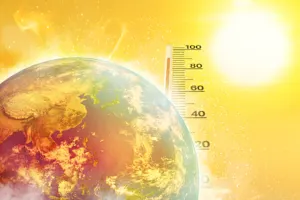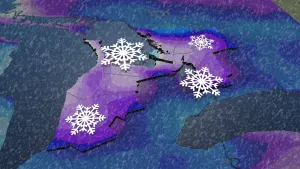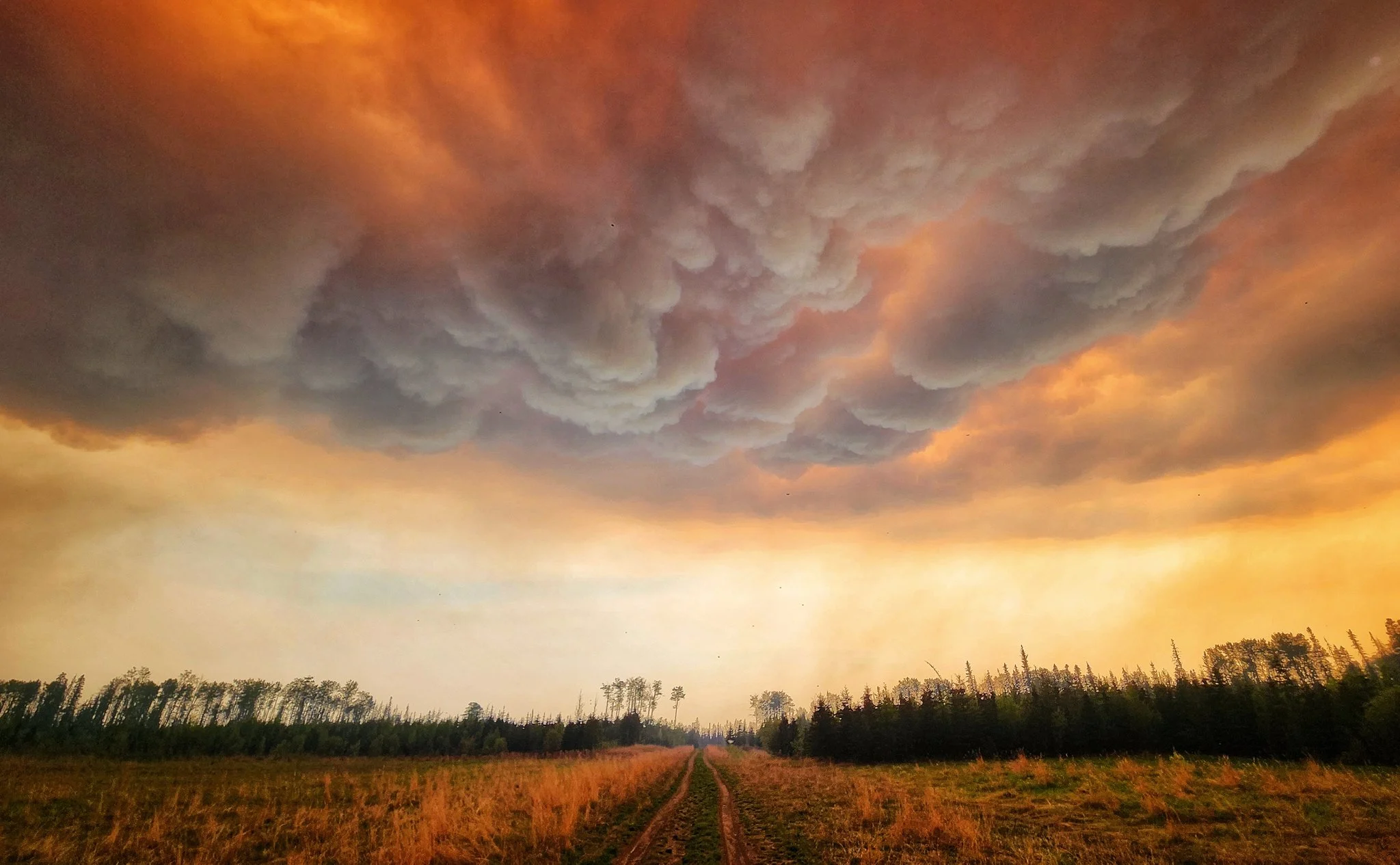
Extreme fire risk persists in Alberta, smoke could reach cities soon
Additional wildfires are likely across Alberta this week, with a wind shift blowing smoke toward cities by Tuesday
Wildfire season is off to a terrible start across Alberta as a formidable heat wave gripping the province will exacerbate ongoing blazes and lead to an extreme risk for additional fire ignition in the coming days.
Conditions are favourable for the rapid development and spread of any new fires that spark this week. Poor air quality is also a concern for the province’s major metropolitan areas as an impending wind shift will send wildfire smoke blowing south by Tuesday.
Visit The Weather Network's wildfire hub to keep up with the latest on the active start to wildfire season across Western Canada.
Extreme fire risk builds into this week
Months of dry conditions and the second heat wave in as many days have led to volatile fire conditions across the majority of Alberta.
So far this year, we’ve seen more than 450 documented blazes break out across the province, with more than half a million hectares of land burned. The vast majority of those fires have broken out this month, and nearly half of them were sparked by human activities.
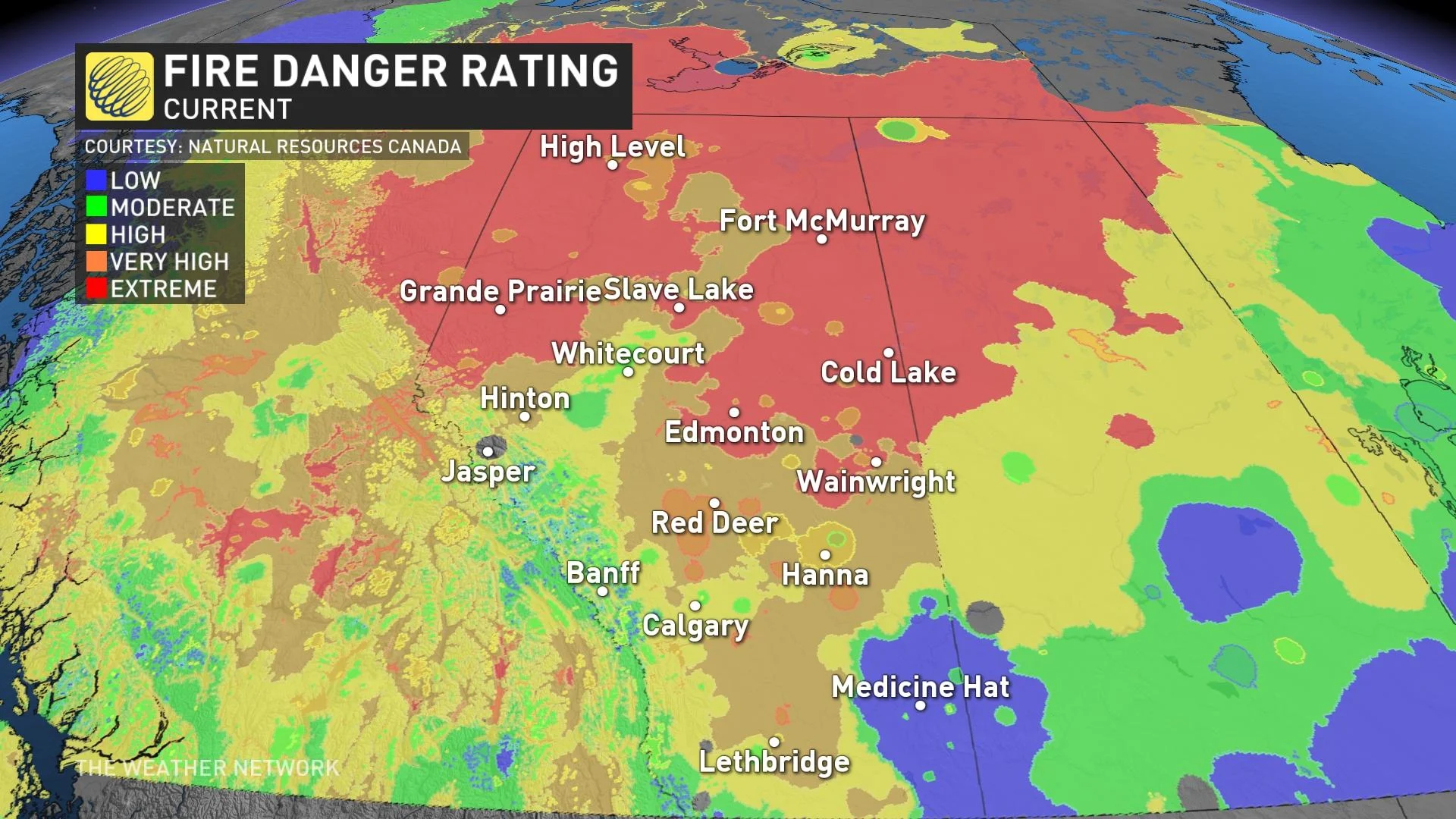
These fires combined have burned more than one per cent of Alberta’s total forests so far this year, and the province’s wildfire season is only just now getting underway. To put it into perspective, the total size of Alberta's forests is more than 400,000 square kilometres.
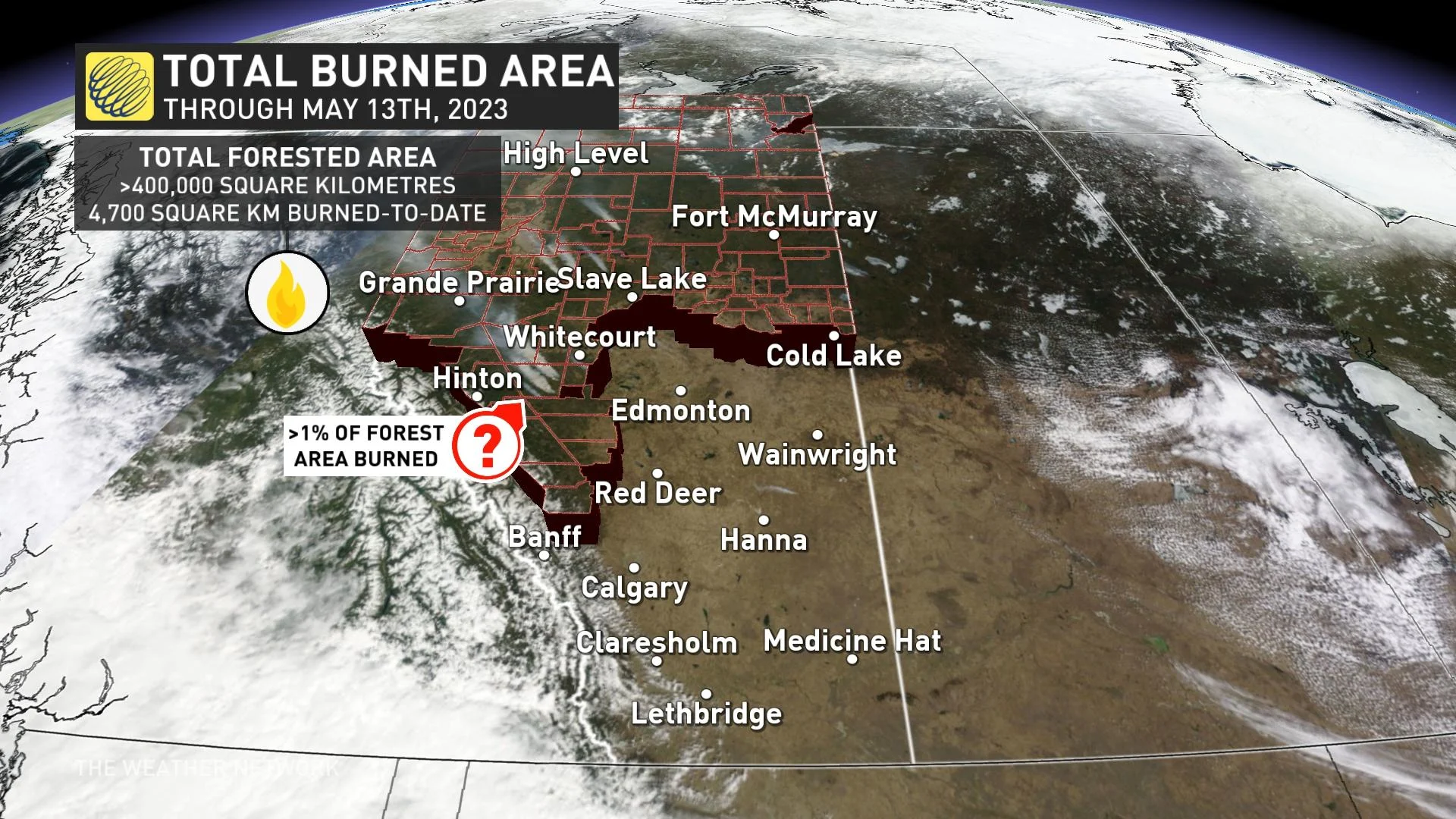
Unseasonably hot temperatures will persist early this week as much of the province encounters daytime highs in the upper 20s, with some communities facing highs climbing into the 30s.
These temperatures are 10-15+ degrees above average for the middle of May, likely threatening records in some areas.
Another round of unseasonably high heat is possible by the end of the week and into next weekend.
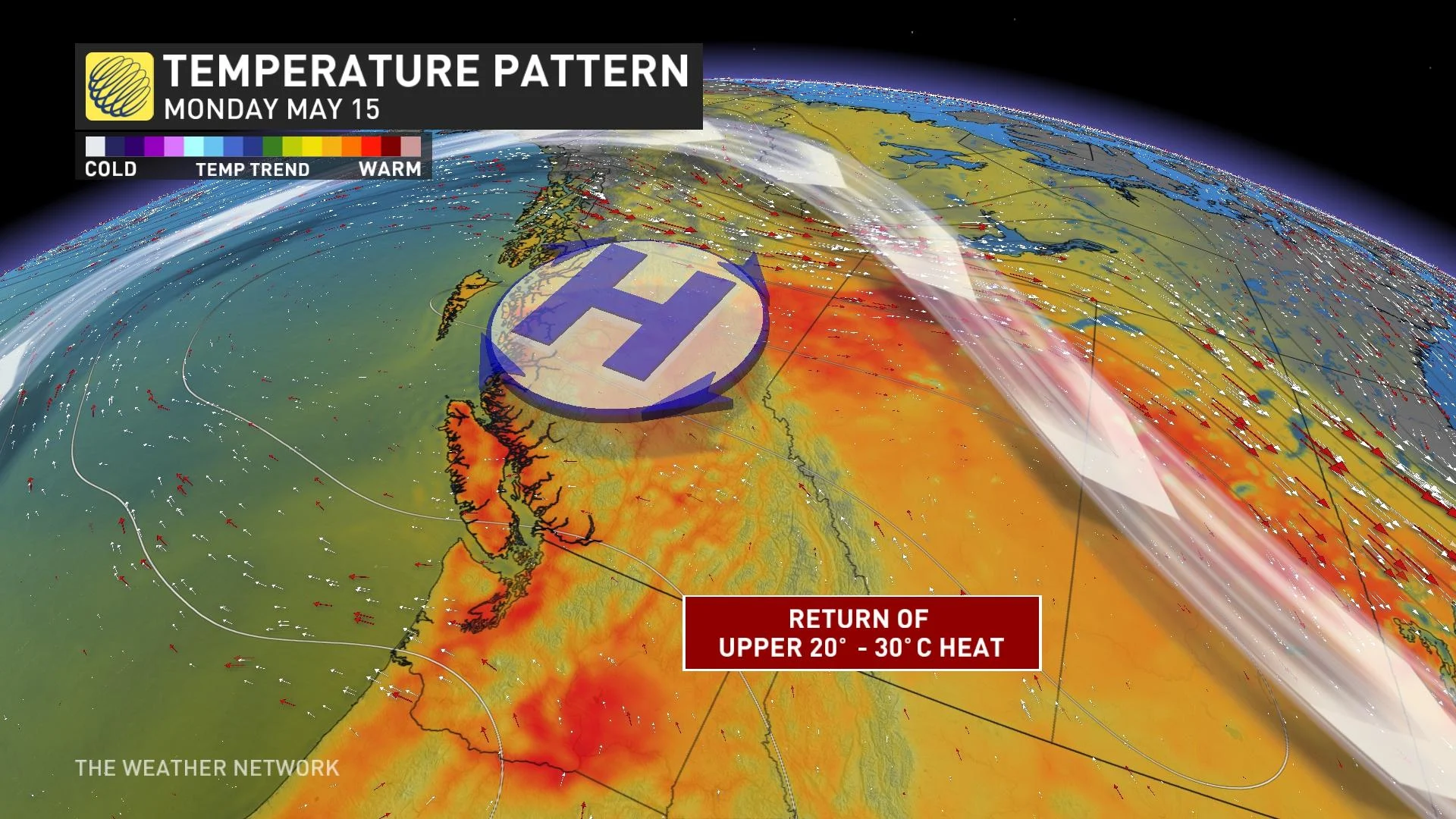
WATCH: Storm chaser's up-close encounter with a ferocious Alberta wildfire
RELATED: Residents urged to evacuate as wildfires continue to rage in northeast B.C.
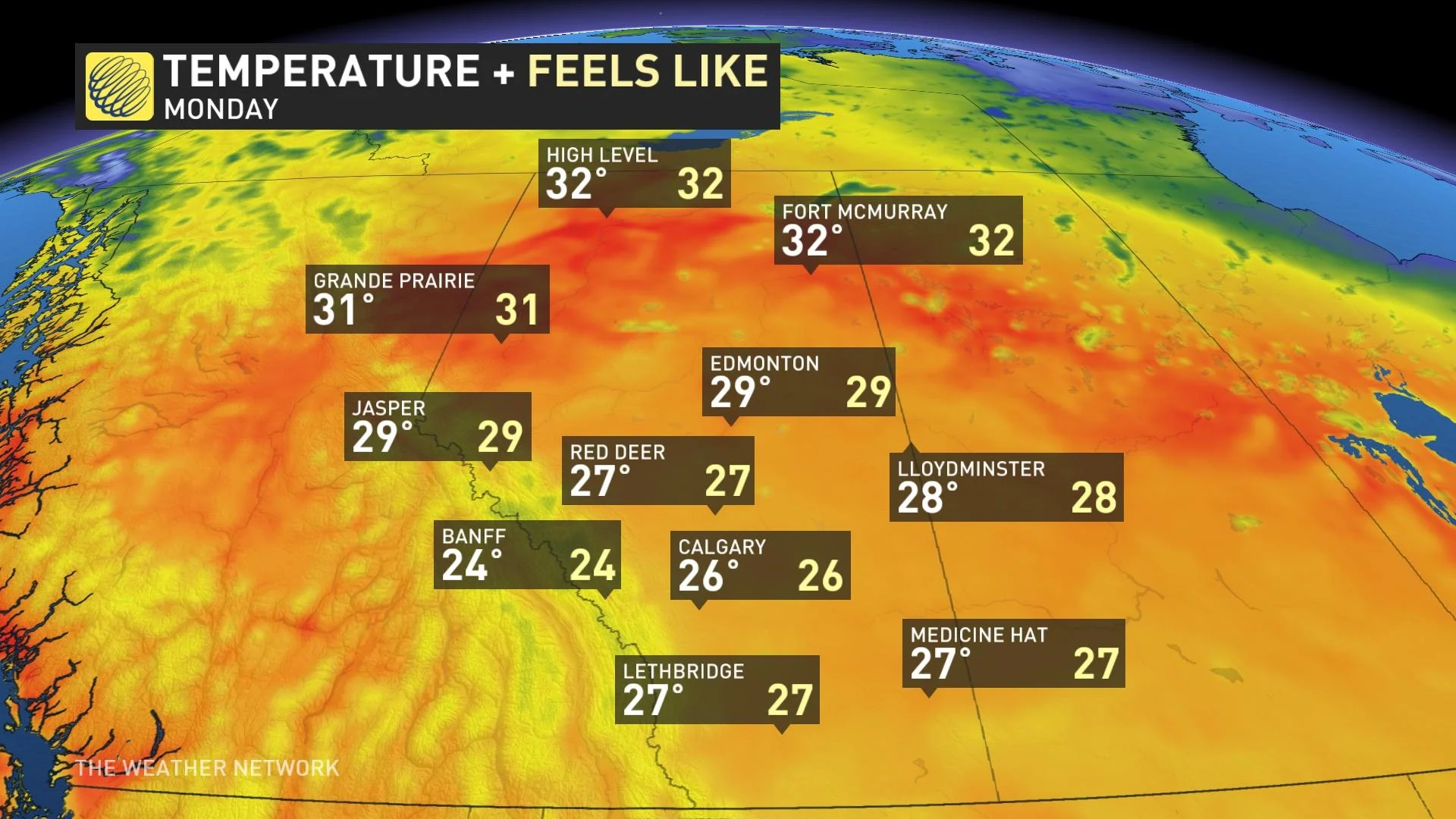
The heat will be accompanied by very low humidity. The combination of high temperatures and low moisture will foster a considerable fire danger throughout the region.
Day after day of sunny, dry, and unseasonably hot conditions will allow for an extreme fire danger to overspread much of Alberta by this week, even spreading into neighbouring sections of western Saskatchewan, northeastern British Columbia, and the Northwest Territories.
WATCH: Why wildfires are growing at a rapid rate this spring in Alberta
Destructive wildfire season shows no signs of relenting
While May is the traditional peak of wildfire season in Alberta, the sheer scope of the wildfires across the province this year is unprecedented.
This year’s fires have collectively consumed more than half a million hectares of land through May 14, which is more than seven-and-a-half times the total land burned by wildfires through this point in the year over the past five seasons combined.
It puts this season on track to become the province's worst in terms of area burned.
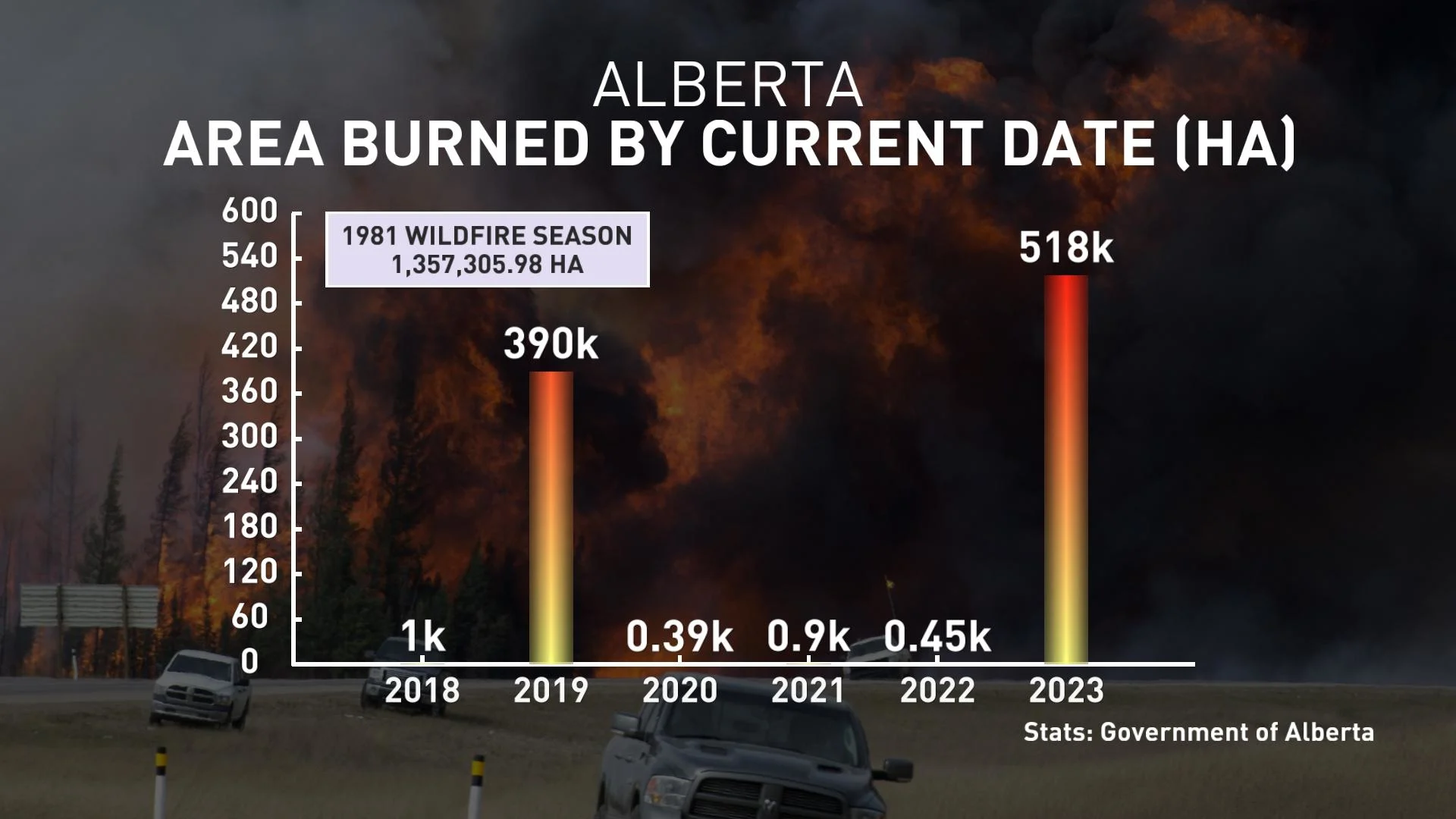
Tens of thousands of Albertans have been forced from their homes this month as crews rushed to contain out-of-control wildfires as they threatened communities.
Some homes and structures have been damaged by the blazes so far, with significant infrastructure damage reported in the Sturgeon Lake Cree First Nation.
Heat, wildfire smoke poses health risk
There are heat warnings and special air quality statements in parts of the province as a result of the temperatures and wildfire smoke.
Wildfire smoke will be a major concern throughout the province this week. The bulk of the recent wildfire smoke has lifted north and east away from Alberta’s major population centres.
A northerly wind shift arriving Monday night into Tuesday will redirect much of that smoke south toward the Edmonton and Calgary metro areas, potentially leading to hazardous air quality for vulnerable residents.
Both air quality and visibility can fluctuate over short distances due to wildfire smoke, and each can vary considerably from hour to hour.
Wildfire smoke can be harmful to everyone’s health even at low concentrations. Continue to take actions to protect your health and reduce exposure to smoke.
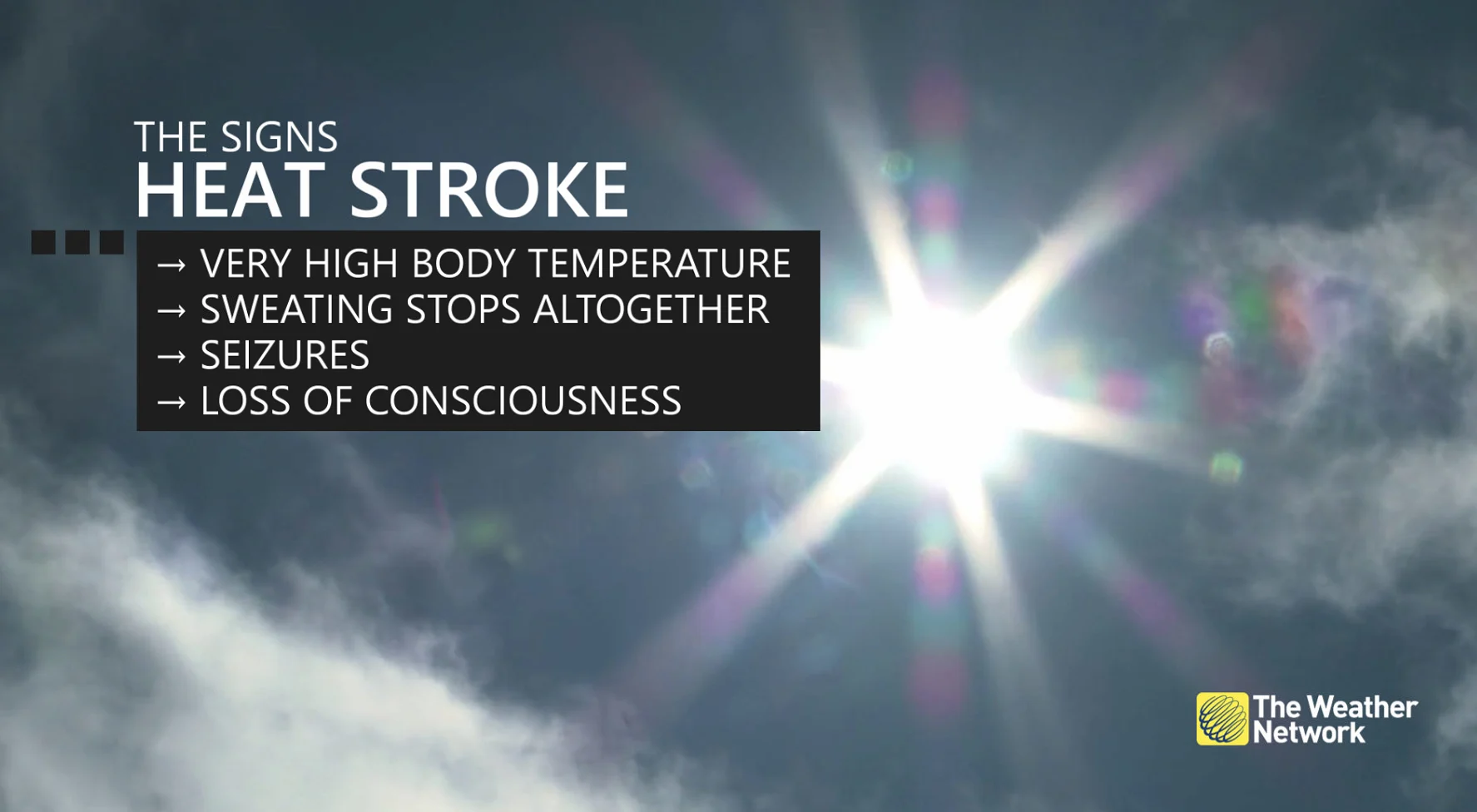
People under the heat warnings are advised to take the following precautions to protect themselves, their families, and their neighbours:
Consider rescheduling outdoor activities to cooler hours of the day.
Take frequent breaks from the heat, spending time in cooled indoor spaces where possible.
Drink plenty of water and other non-alcoholic, non-caffeinated beverages to stay hydrated.
Check for your children or pets before you exit your vehicle. Do not leave any person or pet inside a closed vehicle, for any length of time
Thumbnail image courtesy of Kyle Brittain.
This article contains files from CBC News.







